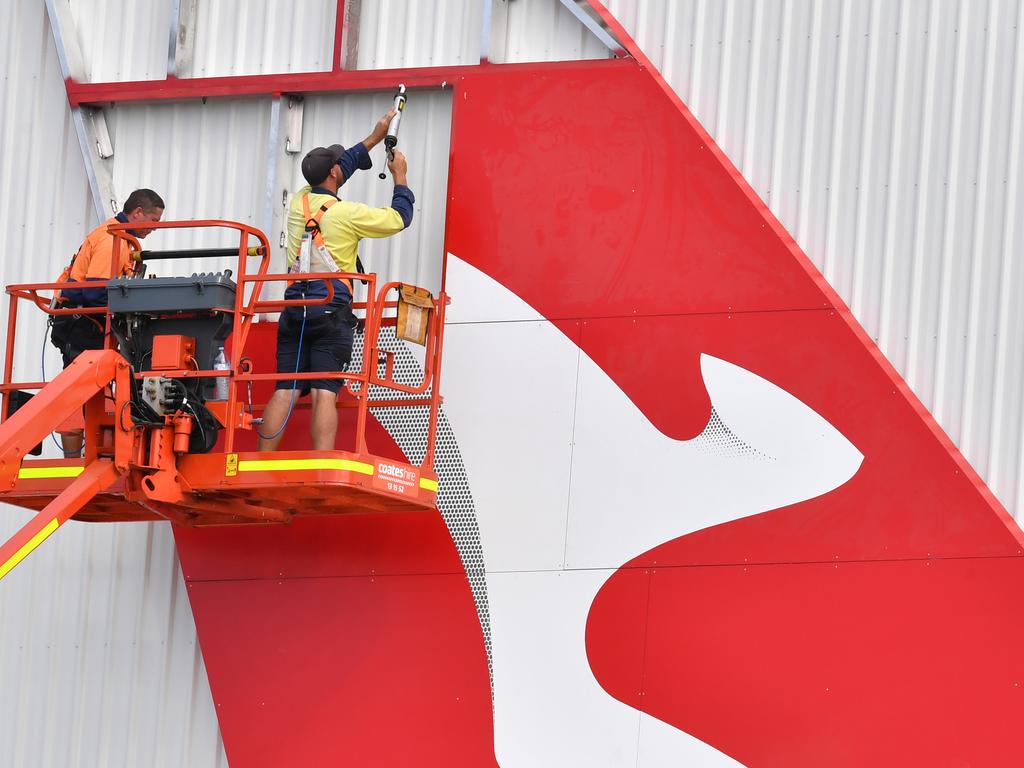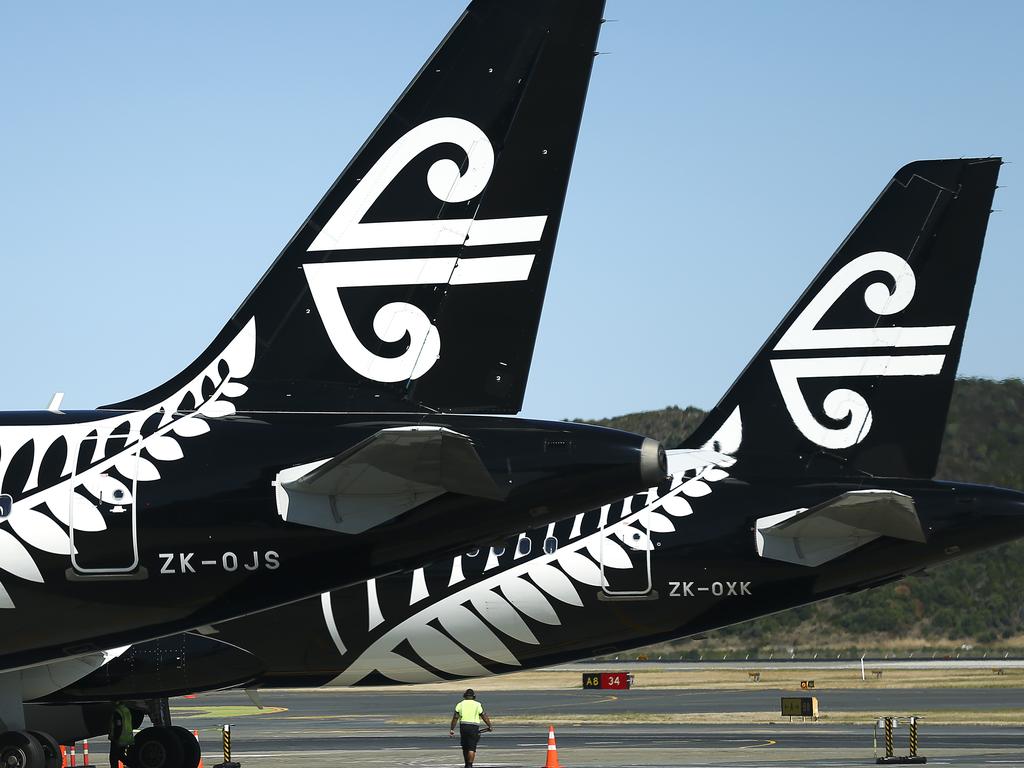Virgin Australia owners facing a wipe-out
With its major shareholders under pressure themselves, Virgin has placed its future in the hands of the government.
Virgin Australia has placed its future in the hands of the federal government with the collapse in the global aviation industry preventing its major airline shareholders propping up the nation’s second-biggest carrier during the coronavirus crisis.
The funding squeeze prompted Virgin chief executive Paul Scurrah to go to Canberra to present a “preliminary proposal” for a $1.4bn loan facility in the event of a prolonged crisis.
Virgin’s major shareholders — Chinese conglomerate HNA Group, which itself has asked for Chinese government support, China’s Nanshan, Singapore Airlines and Etihad — previously gave Virgin a loan in 2016, but have each come under pressure from the shock to the global aviation industry.
Under the terms of the proposal, the government would take a stake in Virgin Australia if the loan could not be paid back within two or three years.
Such a move is likely to substantially dilute existing shareholders, who along with Virgin founder Richard Branson, own 90 per cent of the airline.
In a statement to the ASX made after The Australian revealed the loan request, Mr Scurrah said support would be necessary for the industry if the crisis continued indefinitely.
“Companies like the Virgin Australia Group are taking a range of measures to respond and manage the financial impact. However, support will be necessary for the industry if this crisis continues indefinitely, to protect jobs and ensure Australia retains a strong, competitive aviation and tourism sector once this crisis is over,” Mr Scurrah said.
Virgin’s shares surged 18.8 per cent to close at 7.5c on Tuesday. The closing price values Virgin at just over $800m.
Although Qantas has denied it was in need of a government handout, a source said the airline would expect $4.2bn in assistance, in the event a $1.4bn loan was granted to Virgin Australia.
The huge sum was based on the fact that Qantas had three times the revenue of Virgin Australia, the source said. Such a move would put Canberra on the hook for a $5.6bn bailout of the nation’s aviation industry.
Both airlines have been left reeling from the essential closure of borders to prevent the spread of the coronavirus. At the same time, the economy has slowed sharply following measures to restrict non-essential travel.
The federal government declined to rule out a Virgin Australia rescue package, saying a strong, competitive airline sector was vitally important to the country.
Josh Frydenberg on Tuesday said the government’s $130bn wage subsidy would help the airline stay afloat and keep on staff.
“We strongly support the aviation sector and that’s been reflected in our earlier announcements about more than $700m worth of relief to the aviation sector, and one of the beneficiaries of that was Virgin,” the Treasurer told Sky News.
Business Council of Australia president Jennifer Westacott said the government has “to be open to making sure that we come out of this with a competitive economy, with an economy that is stronger”.
Ms Westacott also urged the government to “take the right action to keep these huge employers and huge parts of the way we live”.
CommSec senior economist Craig James said such unprecedented times called for unprecedented measures, and the government had shown it was prepared to do what was needed.
“It’s an amazing period when you’ve got an airline whose chief operation is carrying people back and forth and essentially that role has been taken away from them, particularly in terms of international flights,” Mr James said.
“Their livelihood, their revenue has been closed down through no fault of their own and their ability to be able to fly planes has been restricted. There’s got to be some way of supporting the airlines through what has been an extraordinary period of time.”
The recovery for international airlines was expected to take significantly longer, with Air New Zealand announcing it would emerge from the coronavirus crisis as a predominantly domestic carrier.
In a letter to staff, shared with the ASX, chief executive Greg Foran said “most countries would take a cautious approach to allowing international tourism in the next year, New Zealand included”.
With international flights accounting for two-thirds of Air New Zealand’s revenue, Mr Foran said it had been left with no choice but to reduce the 12,000-strong workforce by almost a third.
“Clearly, we will be smaller for some time and we will need fewer staff. We expect that even in a year’s time we will be at least 30 per cent smaller than we are today,” he said. “Therefore we are planning to be a domestic airline with limited international services to keep supply lines open for the foreseeable future.”
Air New Zealand’s shares closed down 5.6 per cent at 84c, but the market responded well to Virgin Australia’s request for government assistance. After a brief trading halt so the airline could update the market, the stock closed up 18.7 per cent at 9.5c.
Qantas closed up almost 1 per cent at $3.23.








To join the conversation, please log in. Don't have an account? Register
Join the conversation, you are commenting as Logout